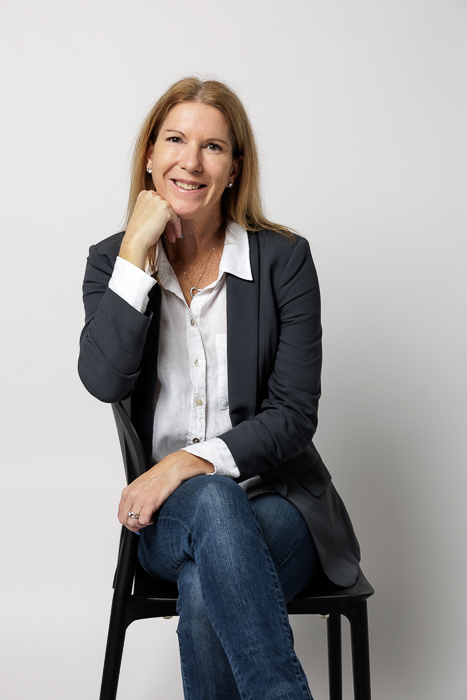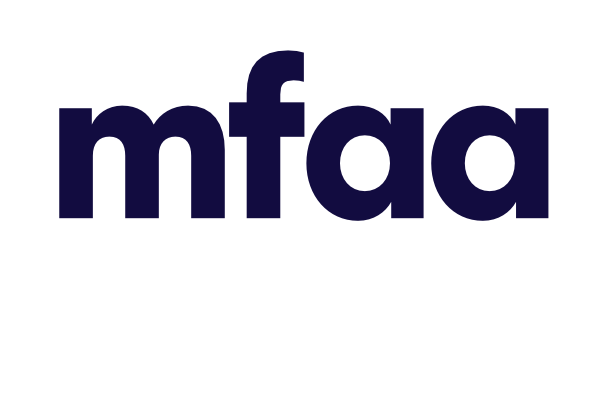Home » Commercial Property Loans | 60%-90% LVR | Specialist Commercial Brokers | Smart Business Plans » Commercial Property Loan Interest Rates in Australia | Compare 60+ Lenders | Smart Business Plans
Commercial Property Loan Interest Rates in Australia - Current Rates from 5.95%
Access commercial property interest rates from 60+ Australian lenders. Compare interest rates & terms by loan type, property category, and location.

Commercial Property Loan Interest Rates by Loan Type
Last updated 04 February 2026. General Guide Only. Read Our Disclaimer.
Loan Type |
Interest Rate |
Max LVR |
Min Deposit |
Loan Terms |
|---|---|---|---|---|
Purchase Commercial Property |
5.95% - 9.70%
|
80% |
20% |
1 - 30 years |
Refinance Commercial Property |
5.95% - 9.70%
|
80% |
20% |
1 - 30 years |
SMSF Commercial Property |
6.20% - 9.70%
|
80% |
20% |
1 - 30 years |
Construction Finance |
6.45% - 15.00%
|
70% |
30% |
12 - 24 months |
Development Finance |
7.40% - 17.00%
|
65% |
35% |
12 - 36 months |
Bridging Finance |
7.45% - 12.50%
|
80% |
20% |
1 - 12 months |
Mezzanine Finance |
12.00% - 24.00%
|
85% |
15% |
6 - 24 months |
Investor Commercial Property |
Standard rate +0.25%
|
70% |
25% |
1 - 30 years |
Commercial Property Loan Interest Rates by Property Type
Last updated 04 February 2026. General Guide Only. Read Our Disclaimer.
Property Type |
Interest Rate |
Max LVR |
Min Deposit |
|---|---|---|---|
Office Building Loan |
5.95% - 9.70%
|
80% |
20% |
Retail Premises Loan |
6.50% - 9.90%
|
70% |
30% |
Industrial Premises Loan |
5.95% - 9.50%
|
80% |
20% |
Warehouse Premises Loan |
5.95% - 9.50%
|
80% |
20% |
Medical Premises Loan |
5.95% - 7.50%
|
90% |
10% |
Hospitality Premises Loan |
6.80% - 9.90%
|
70% |
30% |
Childcare Centre Loan |
6.40% - 9.90%
|
80% |
30% |
Service Station Loan |
6.80% - 9.90%
|
70% |
30% |
Mixed Use Property Loan |
6.40% - 9.90%
|
70% |
30% |
Self Storage Premises Loan |
6.05% - 8.85
|
70% |
30% |
Aged Care Centre Loan |
6.30% - 8.95%
|
65% |
35% |
Land Acquistion Loan |
6.80% - 10.50%
|
60% |
40% |

Talk directly to a specialist
Ready to get started, or want to learn more?
Get direct access to Nadine Connell - your dedicated commercial finance specialist with over 15+ years experience and 3,300+ happy clients.
Choose how you'd like to connect:
Commercial Property Loan Interest Rates By Property Location
Last updated 04 February 2026. General Guide Only. Read Our Disclaimer.
Location |
Rate Adjustment |
Max LVR |
Market Strength |
|---|---|---|---|
Sydney Commercial Property Loan |
Standard rates
|
Up to 80% |
Premium Market
|
Melbourne Commercial Property Loan |
Standard rates
|
Up to 80% |
Premium Market
|
Brisbane Commercial Property Loan |
Standard rates
|
Up to 80% |
Very Strong
|
Perth Commercial Property Loan |
+0.10% to +0.25%
|
Up to 75% |
Strong
|
Adelaide Commercial Property Loan |
+0.10% to +0.25%
|
Up to 75% |
Strong
|
Canberra Commercial Property Loan |
Standard rates
|
Up to 75% |
Strong
|
Gold Coast Commercial Property Loan |
Standard rates
|
Up to 75% |
Strong
|
Sunshine Coast Commercial Property Loan |
+0.15% to +0.30%
|
Up to 75% |
Strong
|
Newcastle Commercial Property Loan |
+0.20% to +0.40%
|
Up to 70% |
Moderate
|
Wollongong Commercial Property Loan |
+0.20% to +0.40%
|
Up to 70% |
Moderate
|
Hobart Commercial Property Loan |
+0.30% to +0.50%
|
Up to 70% |
Moderate
|
Darwin Commercial Property Loan |
+0.40% to +0.80%
|
Up to 65% |
Moderate
|
Regional Commercial Property Loan |
+0.50% to +1.50%
|
Up to 65% |
Variable
|
What Determines Your Actual Rates & Terms?
Commercial lending is more complex than residential. There are a number of factors that will determine your commercial property loan interest rates, including:
Your Financial Position
Your business revenue, cash flow, assets, existing debts, and overall financial health significantly impact your rate.
Property Type & Quality
Prime office buildings attract better rates than specialized properties. Property age, condition, and marketability matter.
Property Location
Major city CBD properties typically receive preferential rates compared to regional or remote locations.
Credit & Risk Profile
Your credit score, payment history, industry risk, and business experience all influence lender confidence and pricing.
Lease Quality & Terms
Strong tenants with long leases improve rates. National tenants and government leases are particularly favorable.
Settlement Timeframe
Urgent settlements may attract premium pricing. Standard 30-60 day settlements typically achieve best rates.
Loan Size & LVR
Larger loans often attract better rates. Lower LVR (more deposit) significantly reduces risk and improves pricing.
Banking Relationships
Existing relationships, multiple products, and transaction banking can unlock preferential pricing tiers.
Market Conditions
RBA cash rate, lender appetite, competition, and economic conditions all influence daily rate movements.

Nadine Connell
Commercial Finance Broker
Why Smart Business Plans Helps You Get Better Deals
We don't just find loans – we architect optimal financing solutions by understanding every factor that impacts your rate and terms
Deep Market Intelligence
We track daily rate movements across 60+ lenders. We know which lenders are hungry for deals, who's tightening criteria, and where the best opportunities lie right now.
Pre-Positioned for Success
We know exactly how each lender will view your application before we submit. No wasted time, no credit hits on unlikely approvals – just targeted applications to the right lenders.
Deal Structure Optimisation
Small tweaks make big differences. We structure your loan to maximize approval chances and minimize rates – adjusting LVR, loan terms, and security structures for optimal outcomes.
Presentation That Wins
Lenders see hundreds of applications. We present yours to highlight strengths, address concerns proactively, and tell your story in the language lenders want to hear.
Relationship Leverage
Our established relationships mean direct access to decision makers, faster approvals, and the ability to negotiate terms that aren't advertised. Your application doesn't sit in a queue.
Competition Creates Value
We create competitive tension between lenders. When banks know they're competing for your business, rates drop and terms improve. Going direct eliminates this advantage.
We Navigate Complexity You Shouldn't Have To
Lender Preferences
- Property type appetites
- Location restrictions
- Industry preferences
- Deal size sweet spots
- Security requirements
Technical Knowledge
- Serviceability calculations
- Valuation methodologies
- Tax structure impacts
- Cash flow assessments
- Risk rating factors
Market Dynamics
- Rate cycle timing
- Lender policy changes
- Credit appetite shifts
- Regional variations
- Sector-specific trends
The difference is expertise: While you focus on running your business, we focus on getting you the optimal commercial property finance deal. It's not just about finding a loan – it's about understanding every lever that can be pulled to improve your outcome.
Frequently asked questions
What's the current interest rate for commercial property loans?
Commercial property loan interest rates as at [spb_current_date] range from 5.95% p.a. Standard commercial loans start from 5.95%, owner-occupier rates from 5.95% – 9.70%, and investment property rates from 6.10% – 9.70%. Your actual rate will depend on factors such as the property type you wish to acquire, the locations of the property, your LVR and financial position.
Call our team on 1300 262 098 for a free quote.
How do commercial property rates compare to residential?
We find that commercial property loan interest rates are typically 0.5-2% higher than residential mortgages mostly due to increased risk and complexity. However, commercial loans can offer unique benefits like higher loan amounts, longer interest-only periods, and tax deductibility for business purposes.
What determines my specific interest rate?
Your actual commercial property loan interest rate will be determined by a number of factors including your loan-to-value ratio (LVR), the property type and location your targeting, your business financials, the quality of the lease (if relevant), the size of the overall loan, and the current market conditions and lender appetites.
Medical centres and office buildings typically receive better rates than specialised properties for example. Major city locations generally attract lower interest rates than regional areas.
Can I get a fixed rate on a commercial property loan?
Yes, fixed rates are available for commercial property loans, typically for 1 to 5 year terms. You can generally expect fixed rates to sit about 0.30% to 0.80% above variable rates, but some clients choose them over variable because they provide certainty for budgeting.
Do SMSF commercial property loans have different rates?
Yes, SMSF commercial property loans range from 6.20% – 9.70%, slightly higher than standard commercial rates due to additional compliance requirements. Maximum LVR for SMSF loans is typically 80%, with minimum deposits of 20% required.
How much deposit do I need for the best rates?
A 30% deposit (70% LVR) considered the standard deposit amount for commercial real estate. If you have more than 30% deposit, this can be advantageous as you can access lower interest rates. If you have less than 30% deposit, you may still be able to secure finance with specialist and regional lenders, though at a higher rate. Residential equity or security can also help you get commercial real estate lending.
Can I negotiate commercial property loan rates?
Absolutely. That’s one of the key benefits of using us to broker your commercial loan. Unlike residential loans, commercial interest rates are more negotiable. We leverage competition between our 60+ panel lenders to negotiate better rates. Factors like loan size, relationship banking, and multiple securities can potentially unlock rate discount of 0.30% to 0.80%.
Should I consider refinancing for a better rate?
Consider refinancing a commercial property when rates drop 0.50% or more below your current rate, your financial position improves significantly, your LVR drops below key thresholds (80%, 70%, 60%), or your fixed rate period ends. We provide free refinancing assessments to calculate potential savings.
